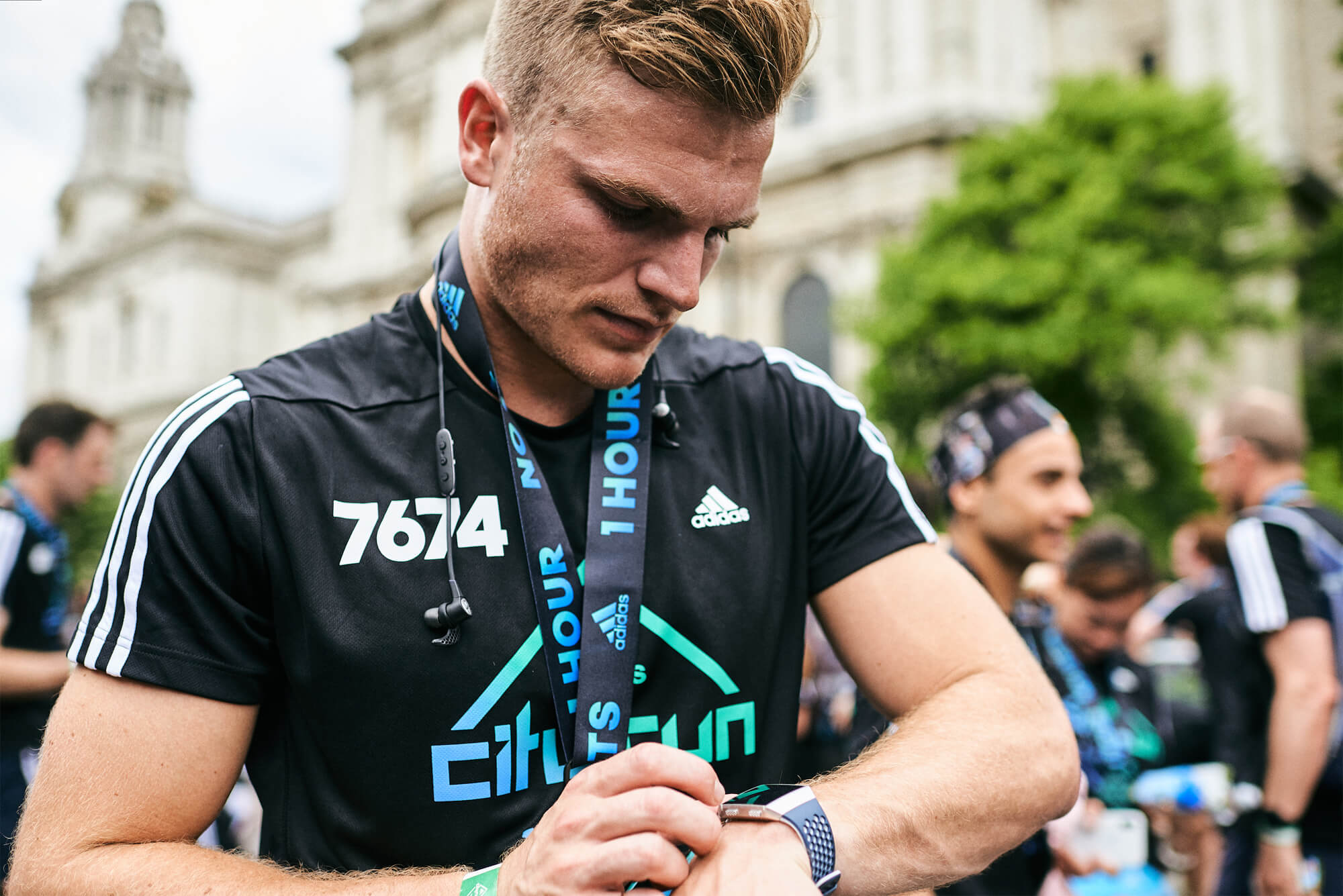Two days ago we posted that the Holiday Inn, official hotel partner of the London Marathon, has joined forces with two of the UK’s leading body and mind training experts. Sammy Margo (published author and physio who has worked with Premier League teams) and leading mental performance coach Andy Barton (whose clients include top footballers, golfers and Olympians).
We also promised that in the coming days, we would release each of their top training tips. Yesterday we kickstarted with Sammy Margo’s tips, today we give you Andy Barton’s:
Section 1
The power of enjoying yourself
One thing people can do when they are taking on a challenge such as a marathon is to start taking it a bit too seriously and forgetting about the fun side of their activity. They think that the only way to improve is to be serious and they pile pressure on themselves and get frustrated when things don’t go to plan. We are actually far more resourceful when we are happy; we have greater energy, we think more clearly, we sleep longer and even digest our food better. Just putting a smile on your face can make a significant difference in the way you feel before and during a race. Ensure you find the fun in what you are doing and you are far more likely to stay with training and get better results.
Tell the world
You may be tempted to keep your goals for the marathon to yourself. Research, however, shows a real benefit to sharing your goals with as many people as possible, partly as there is an incentive to avoid the embarrassment of not achieving it once you have told them, but also because it helps to increase motivation, focus and energy towards training and the event itself. One of the great benefits of social media is that you can share your goal and your progress with all of your friends at the click of a button. You also have the added benefit of getting positive support as you gradually increase your training regime and reach new milestones. So, if you have a goal in mind, make sure you tell everyone.
When a question is the answer
Although people often use such declarative statements as “I will do it!” as a means to motivate themselves to perform, research carried out by psychologists Ibrahim Senay and Dolores Albarracin suggests that such statements actually have the opposite effect to what is intended. Often, these statements sound like obligations and we don’t like doing things we are obliged to do, do we? Interestingly, the psychologists found that people are more likely to motivate themselves to train if they used a question rather than a statement. People who say to themselves “shall I go for a run?” instead of “I shall go for a run” feel that they have a choice, and so embrace their decision to exercise in a far more positive way. So next time you want to get motivated don’t tell yourself – ask yourself instead!
Take control of your inner coach
One of the things that can have a massively detrimental effect on our performance is that mean, hyper-critical and pessimistic inner voice that creeps up on us when we need it least. It’s the voice that tells us that we are “no good” and that we “can’t do it”. The problem is, we tend to believe what the critical voice says to us. I often ask clients what they would do if they had a coach who spoke to them the way that they speak to themselves. Nearly always they say they would sack the coach. So next time you find your inner coach speaking to you in a negative way, sack it. Then replace it with a voice which is positive, encouraging and motivating and notice how your attitude changes towards your running.
Section 2
How Isaac Newton can improve your training
I’ve yet to meet an athlete of any level who doesn’t have days when they would rather slump on the sofa in front of the television with a large glass of wine than go out for a training run, especially on those cold, wet and dark evenings. They imagine a long, grueling run ahead of them and decide it’s too far or will take too much time and often give in to the temptation of having a night off. Rather than think in terms of “all or nothing”, it would actually be better to set a much smaller goal for that evening. When you’re due to run for ten miles but can’t face it, tell yourself that you’ll go for just a mile. Before you know it, Newton’s First Law of Motion will be in effect and you’ll keep going. According to Newton’s First Law of Motion, “a body in motion stays in motion”, so by getting your body moving with just a short run will more often than not get you more in the mood to run longer and further.
Mental pain relief
I have worked with a lot of distance runners over the years, and one of the main issues that they mention is the pain that they experience when they are competing. Pain is an inevitable factor when you are putting your body through over 26 miles of hard running, but there are ways that you can minimise it. Firstly, actually changing the word from “pain” to something more tolerable such as “discomfort” or “a niggle” can make a real difference to how you perceive it. Pain is highly subjective and we tend to feel it more if we expect to feel it. Secondly, when people experience pain (or should I say “discomfort”) they tend to let their heads drop so they are looking at the ground as they run. By looking down at the ground, you can start to become more internal and actually end up focusing more on the pain which just makes it worse. By keeping your eyes up and expanding your vision, you become more externally focused and it’s much easier to distract yourself from any niggles that may develop.
Focus on the positive
When we are worried, anxious, fearful or in a generally negative mood, we tend to speak to ourselves using negative statements such as “don’t be nervous”, “don’t worry” or “don’t mess this up”. Unfortunately, our minds can’t actually process negatives so we end up focusing on the thing that we don’t want to happen, effectively programming ourselves to do things badly. If you have ever been carrying a tray of drinks and someone has said “don’t spill them” you will understand how this makes you more likely to spill them. Give yourself positive instructions such as “stay calm”, “be confident” or “go for it” and you give yourself a better chance of success in your running.
Section 3
Strike the pose
Psychologists at Harvard Business School carried out a study where they asked their subjects to adopt “power poses”; effectively changing their body language to make their bodies bigger. After only two minutes of power posing, they found that on average their dominance hormone, testosterone, increased by almost 20 per cent. At the same time, their stress hormone, cortisol, reduced by a similar amount. Incredibly, after only a couple of minutes you can feel significantly more confident and relaxed just by changing your posture. So if you want to feel confident before and during your run, all you need to do is strike the right pose.
Fire up your imagination
One way of exploiting your imagination is to use mental rehearsal techniques to train the mind and body to perform successfully. When we imagine performing a skill, we fire up an almost identical pattern of neural responses to when we are actually performing the skill itself. By imagining yourself in the process of running the marathon you can train your brain to be more prepared for the race, so that it feels like it’s something you have already achieved. In fact, our imagination is so powerful that studies have shown that just by mentally rehearsing having a workout in the gym you can increase your muscle mass. If you want to be fitter, faster and stronger on your run, all you have to do is use a little imagination!
Stay in the present
Athletes perform at their best when they are in a state of flow or “in the zone”; a state where running feels easy and effortless. We get in the zone when we are performing and trusting our unconscious, learned skills without any self-consciousness, when we are free of distractions, fears and concern of the consequences of our actions. To get into the zone, it is essential for the mind to be in the present. Marathon runners can often find themselves out of the present, focusing on the future, about how far they have to go and what time they are going to run, or looking back to the past and worrying about whether they have done enough training and whether they have started at the right pace. If you just focus on what is in front of you, enjoy the crowds, the atmosphere and even focus on your breathing, you are more likely to get into the zone.







